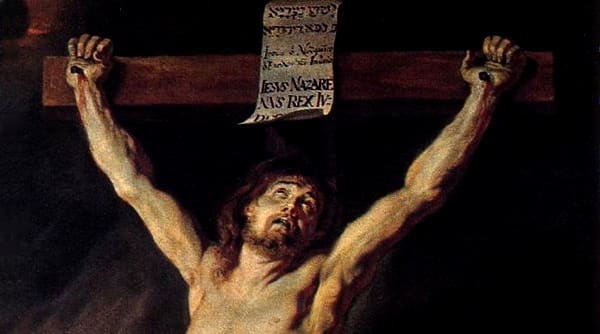How Do We Know God’s Will?
Many people after discovering the faith soon realize that it is sometimes difficult to discern God’s will in a given situation. Most people think that knowing God’s will is impossible. After all, He gave us our natural capacity to reason and He has revealed Himself to us – so the rest is up to us. There is some truth to this, especially at the beginning of the spiritual life. But anyone who tries to make progress in our pilgrimage of faith this way is soon discouraged. Following Christ often requires us to act in ways far beyond what common sense would dictate. This is why St. Paul urges, “calling to mind the mercy of God, offer your bodies as a living sacrifice, holy and acceptable to God, your spiritual worship. Do not conform yourselves to this age, but live a transformed life by the renewal of your minds – so that you may discern what is God’s will — what is good, pleasing and perfect” (Romans 12:1-2).
![PeterPaulRubensTheCrucifiedChrist[Cross,Crucifixion]WGA20190](https://spiritualdirection.com/wp-content/uploads/2014/02/PeterPaulRubensTheCrucifiedChristWGA20190-218x380.jpg) As long as we try to live like everybody else, as long as we think like everyone else, our ability to know God’s will is severely impeded. The mercy of God revealed by Christ crucified gives us a different standard. The pathway to knowing the will of God is found in loving imitation of the Lord who laid down His life for His friends. God’s will is found in the Cross.
As long as we try to live like everybody else, as long as we think like everyone else, our ability to know God’s will is severely impeded. The mercy of God revealed by Christ crucified gives us a different standard. The pathway to knowing the will of God is found in loving imitation of the Lord who laid down His life for His friends. God’s will is found in the Cross.
We can find the Cross, first of all through, loving sacrifice no matter how small or insignificant or hidden from the world. In fact, the more hidden the better. In the old days, this was called “offering it up.” Whatever is the least desired, least comfortable, least understood – God’s will is hidden there waiting to be discovered. Whenever we renounce anything out of love and devotion to the Lord, whenever we bear a trial for His glory, whenever we offer up our internal pain and continue out of faithfulness to Him – this action opens up space in our hearts and minds, space for God’s will to flow into our will. Paradoxically, this never overthrows our freedom but expands it, liberating us from selfishness and anything else that prevents us from loving to the full.
The Cross of Christ is also found whenever we are moved to do something beautiful for God. It was in her effort to do something beautiful for God that [Saint] Teresa of Calcutta heard the  Lord call her to be His light. She discovered in her efforts to do something beautiful for God new facets of His Holy Will that would have otherwise remained hidden. St. John of the Cross lived by this same wisdom and marveled at the immense horizon of love and freedom God’s will contains. He came to counsel those who were seeking the Will of God, “Where there is no love, put love, and you will find love.”
Lord call her to be His light. She discovered in her efforts to do something beautiful for God new facets of His Holy Will that would have otherwise remained hidden. St. John of the Cross lived by this same wisdom and marveled at the immense horizon of love and freedom God’s will contains. He came to counsel those who were seeking the Will of God, “Where there is no love, put love, and you will find love.”
Editor’s Note: For more of Anthony’s insights on prayer, don’t miss his book, Hidden Mountain Secret Garden, an experience like no other. Anthony has an unusually profound understanding of mystical theology and lives a life of deep prayer. Among his many accomplishments and responsibilities, Dr. Lilles now teaches theology for the Avila Institute.
+
Art for this post on how we know God’s will: The Crucified Christ, Peter Paul Rubens, between 1610 and 1611, PD-US; Mother Teresa of Calcuta [sic], portrait painting by Robert Pérez Paulou, 1 January 1994, CC; St. John of the Cross, Francisco de Zurbarán, 1656, PD-US; all Wikimedia Commons.





